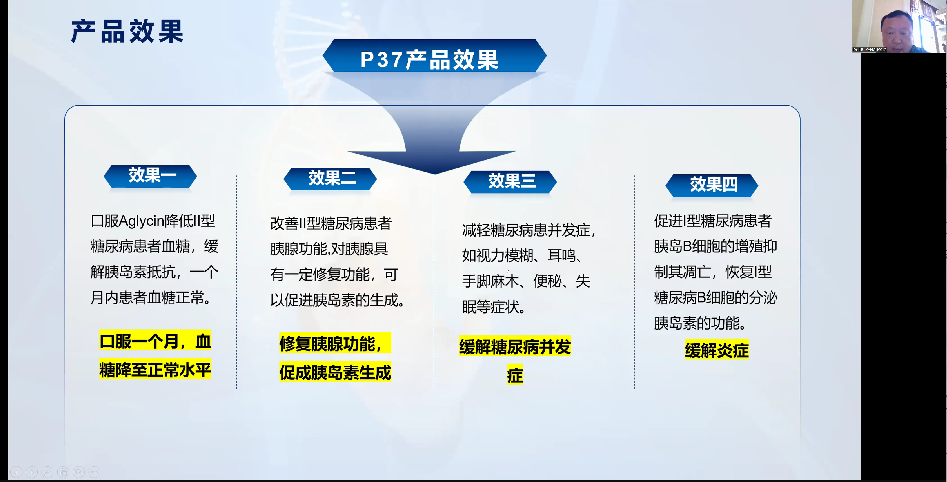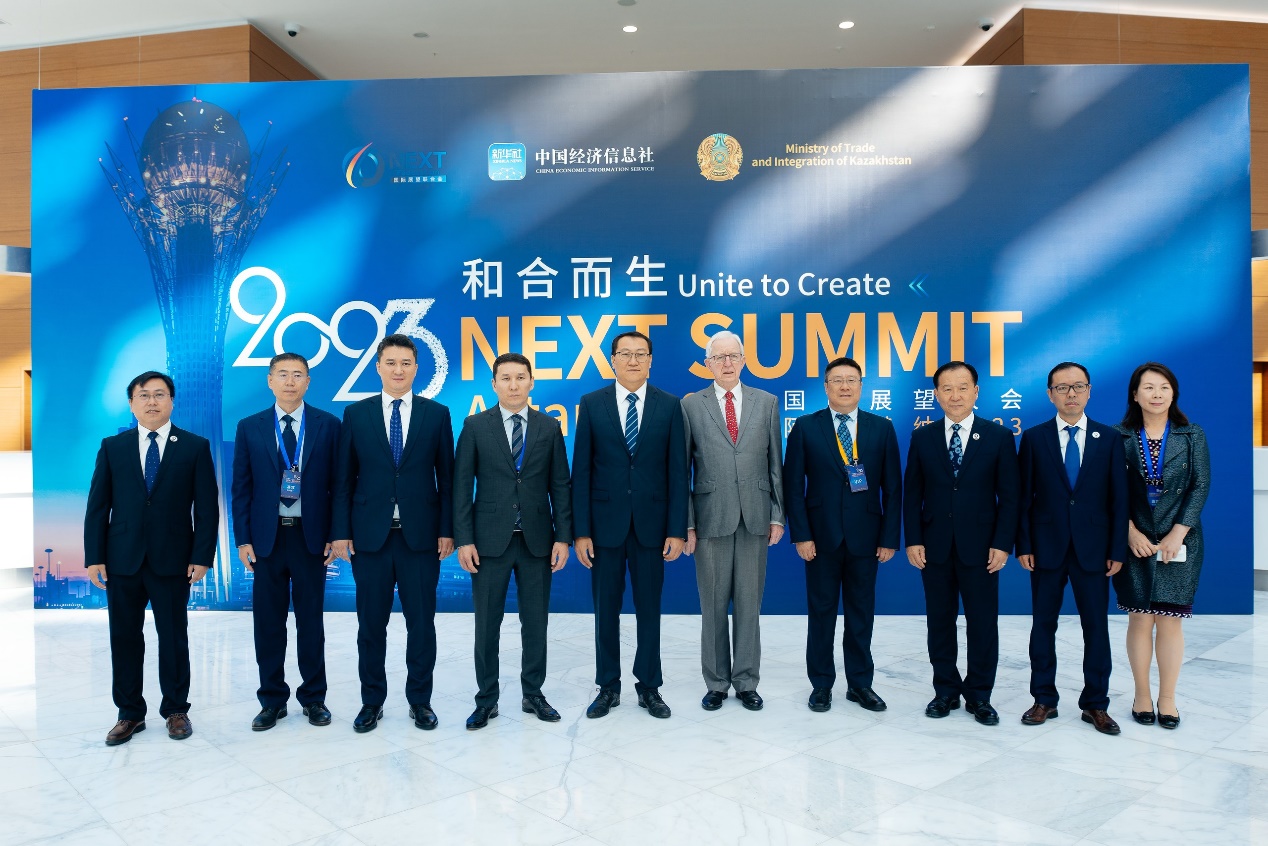NEXT Summit (Astana 2023) explores new opportunities in the health industry
The health industry has become a new global hotspot and growth area, with significant opportunities emerging in the post-pandemic era. Countries and regions worldwide are focusing on key technologies, accelerating efforts to secure a leading position in development. From 2017 to 2021, global researchers published over 3.29 million papers across five major health technology fields—disease prevention and health promotion, disease screening and diagnosis, disease treatment, disease management, and public health—highlighting the growing global attention on health technology research.
On August 22, at the Transforming the Health Industry of NEXT Summit (Astana 2023), several industry experts discussed the opportunities and challenges facing the health industry. The speakers included Mr. Stefano Prior, Chairman of PRIOR Consulting Ltd. Italy; Dr. Yao Chenguang from the China-German Biomedical Center at the School of Life and Health Sciences, Hubei University of Technology; and Professor Hu Kanghong from the same center. The forum was moderated by Li Dan, Executive Member of the Council of NEXT Federation and Secretary-General of the New Zealand Biopharmaceutical Expert Committee.
The pandemic has reshaped the health industry, making the transformation of the healthcare sector inevitable
In the post-pandemic era, people increasingly recognize that health is the foundation of a happy life. Health-related consumption is no longer limited to treating illnesses. All industries and sectors with the ultimate goal of promoting human health have now been incorporated into the broader category of “health consumption.” The scope of the health industry is gradually expanding and becoming more specialized, with a continuously growing and evolving range of health products. This trend is driving the transformation and upgrade of a market worth over a trillion dollars. The new generation of consumers has reached a consensus: they not only seek health but also refined and high-quality health.
At the Transforming the Health Industry of NEXT Summit (Astana 2023), Mr. Stefano Prior, Chairman of PRIOR Consulting Ltd. Italy, delivered a speech on the prospects of the health industry.

Mr. Prior mentioned that the world is going through a challenging period triggered by the Covid-19 pandemic, which has not only impacted the global economy but also altered people’s lifestyles and the healthcare industry. Italy, one of the hardest-hit countries by the pandemic, has accelerated the transformation and reform of its healthcare sector over the past two years. He presented key figures related to the healthcare industry, emphasizing its significant share in the global economy, particularly the growth of the pharmaceutical market and the herbal medicine market.
He provided a detailed overview of Italy’s healthcare spending and the current state of the medical equipment market, highlighting the diversity and innovation within the medical device industry. He also discussed how Covid-19 has accelerated the digital transformation of the healthcare sector, including the adoption of electronic health records, telemedicine, and the use of artificial intelligence in medical diagnostics.
Mr.Prior specifically highlighted the application of artificial intelligence in the medical field, particularly its potential in diagnostics. He discussed the use of modern deep learning methods in medical image analysis and how AI can assist doctors in better understanding surgical procedures. He also emphasized the importance of prevention, highlighting the role of a healthy diet and smart wearables in maintaining health.
Mr.Prior concluded that the transformation of the healthcare industry will further advance technology, quality, and human well-being. He believes that Italy has become one of the leading countries in the healthcare sector, and in the future, more companies will focus on providing technology, artificial intelligence, high-quality food, natural medicines, and environmental health. He expressed strong confidence in the future development of the health industry.
The innovation of the soybean hypoglycemic peptide industry chain may solve the pain points of diabetic patients.
At the sub-forum, Dr. Yao Chenguang from the China-German Biomedical Center of the School of Life and Health Sciences, Hubei University of Technology and Professor Hu Kanghong from the same center delivered a report titled “Soybean Hypoglycemic Peptide Industry Chain”.

Hu Kanghong mentioned that diabetes is one of the major chronic diseases that significantly reduce the quality of human life. With a population of 1.4 billion in China and 1.8 billion in Africa, these two regions account for over 40% of the world’s total population. In China, there are over 140 million diabetic patients, while Africa is experiencing the fastest growth rate of diabetes. Insulin and GLP-1 receptor agonist injections account for 64.3% of the market share, but treatment adherence is extremely poor. Small molecule oral medications often cause side effects such as liver and kidney toxicity, as well as cardiovascular toxicity.
Due to the limited medical resources in Africa, the majority of patients face a situation where medication is unavailable. The team has identified a polypeptide containing 37 amino acids from the seeds of leguminous plants, named P37. This molecule contains three pairs of disulfide bonds, making it resistant to acids, alkalis, and high temperatures. They discovered that pigs fed with P37-containing feed exhibited enrichment of P37 in their small intestines. In models of type 2 diabetes, P37 demonstrated a therapeutic effect comparable to metformin, a first-line treatment for type 2 diabetes. Furthermore, P37 was found to protect the pancreas of diabetic mice. Its ability to regulate blood glucose balance was confirmed across multiple animal models related to diabetes, including models of type 1 diabetes, type 2 diabetes, elderly rats with type 2 diabetes, obesity, and non-alcoholic fatty liver disease. In a clinical trial initiated by researchers involving 170 participants, they also demonstrated that P37-formulated foods significantly reduced fasting and postprandial blood glucose levels in patients with type 2 diabetes, with a response rate as high as 83%.
In response to the national “Belt and Road”, they hope to center their efforts on the scientific research and technological transformation of hypoglycemic peptide P37, and collaborate with African countries to contribute to the health causes of both China and Africa.
The 7th Next Summit (Astana) is co-hosted by the NEXT Federation, China Economic Information Service of Xinhua News Agency, and the Ministry of Trade and Integration of Kazakhstan, under the theme “Unite to Create” The summit aims to enhance the international community’s understanding of and confidence in promoting global innovation, cooperation, and development. It seeks to identify project opportunities and strategic prospects in international cooperation by building a collaborative platform that integrates high-level global resources such as talent, knowledge, technology, and capital. Through this, it will expand global cooperation networks and elevate the level and impact of international collaboration between the public and private sectors.

The Next Summit has become a branded platform for international exchange and cooperation. Upholding the GMABC integrated service concept and operational model—coordinating Government, Media, Academia, Business, and Community resources—it provides a vital bridge and service platform for practical collaboration in policy dialogue, project promotion, technology exchange, talent engagement, and global communication.
For more information, please visit the official website: www.nextsummit.org.

